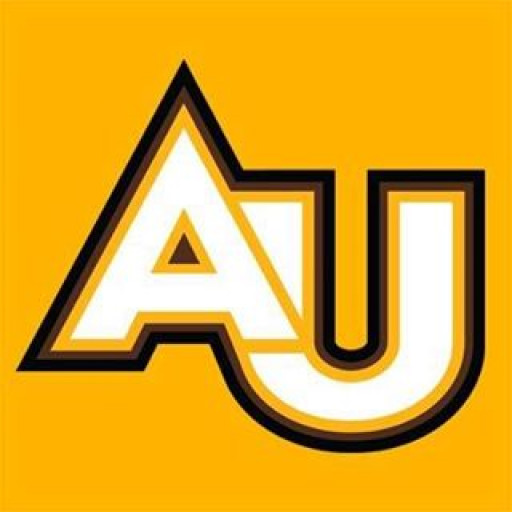Photos of university / #ucl
Evaluation, Inspection, and Educational Improvement (EIEI) at University College London is a comprehensive postgraduate programme designed to equip students with in-depth knowledge and practical skills necessary for enhancing educational quality and accountability. This course addresses critical issues in the evaluation and inspection of educational institutions, including schools, colleges, and universities, providing a rigorous academic framework combined with real-world applications. Students will explore various methodologies for assessing teaching and learning processes, curriculum effectiveness, and institutional performance, emphasizing the importance of evidence-based decision-making in educational improvement.
The curriculum encompasses a wide range of topics such as educational research methods, stakeholder engagement, policy analysis, and data interpretation. Participants learn to design and implement effective evaluation strategies that inform policy and practice, fostering continuous improvement within educational settings. The programme also covers comparative international perspectives, exploring different inspection systems and evaluation models across countries. Emphasis is placed on ethical considerations, cultural responsiveness, and the role of leadership in driving educational change.
Designed for education professionals, policymakers, and researchers, the programme offers a blend of lectures, seminars, case studies, and practical projects. Students benefit from UCL’s strong links with local and international educational agencies, providing opportunities for internships, fieldwork, and collaborative projects. The programme aims to develop critical, analytical, and strategic skills to contribute effectively to the improvement of educational quality at various levels.
Graduates of EIEI are well-prepared for careers in educational inspection agencies, policy advisory roles, school leadership, and consultancy. They will have a nuanced understanding of the frameworks and standards used in evaluation and inspection, along with the capacity to lead initiatives that promote evidence-based improvements in education systems globally. Upon completion, students receive a recognized postgraduate qualification from UCL that underscores their expertise and commitment to advancing educational standards worldwide.
This programme provides students with the opportunity to work collaboratively online with participants from other inspection and evaluation systems across the world, whilst honing practice through sharply focused research. Students will be able to conduct an independent study, developing a case study of their workplace practice.
Students undertake modules to the value of 180 credits.
The programme includes two core modules (60 credits), two optional modules (60 credits) and a dissertation (60 credits); or five modules (150 credits) and a report (30 credits).
A Postgraduate Certificate, two core modules (60 credits) is also offered.
Core modules
- Principles, Frameworks and Context of Educational Evaluation and Inspection
- Evaluation and Inspection for Educational Improvement
Optional modules
- Optional modules can be chosen from the Master's-level module offering at the UCL Institute of Education.
Dissertation/report
All students undertake an independent research project which culminates in a dissertation of 20,000 words or a report of 10,000 words.
Teaching and learning
Teaching is delivered by distance for which online materials (literature and examples) are provided. Each session includes specific tasks which require students to reflect on the literature and have online discussions with peers. There are also opportunities for Skype (group) discussions/tutorials or Q&A. The assessment of each module includes written and online assignments linked to participants' own inspection practice, and a dissertation or report.
Normally a minimum of a second-class Bachelor's degree from a UK university, or an overseas qualification of an equivalent standard is required, plus at least two years' relevant work experience. Those who do not meet these criteria must show an ability to meet the demands of the programme through a qualifying assignment, to be agreed by the Programme Leader.
The financing studies for the university degree programmes at University College London are primarily supported through a combination of government funding, scholarships, bursaries, student loans, and personal funding. For domestic students in the UK, funding is often available through the UK government’s Student Loan Company, which offers tuition fee loans and maintenance loans to cover living costs. These loans are repayable after graduation based on income thresholds, making higher education more accessible for students from diverse economic backgrounds. International students are generally responsible for their tuition fees, which can be paid upfront or through installment plans arranged with the university.
UCL offers a variety of scholarships and bursaries to both domestic and international students to assist with tuition costs and living expenses. These include merit-based awards, need-based bursaries, and country-specific scholarships, which are intended to reduce the financial barriers to accessing education. For example, some scholarships are targeted at students from developing countries or underrepresented backgrounds, fostering diversity and inclusion within the student body.
Furthermore, many students seek part-time employment on or around campus to supplement their income, while some may receive external funding or sponsorships from organizations or government programs relevant to their country of origin. The university also provides financial advice and support services to help students navigate their options for funding studies effectively and responsibly.
Advanced postgraduate programmes might also have specific funding streams such as research grants, fellowships, or industry sponsorships, particularly for research-oriented degrees. These financial supports are aimed at encouraging students to pursue advanced research without the burden of financial stress, often involving partnerships with government agencies, private sector companies, or charitable foundations.
Overall, the financial planning for studies at University College London is designed to maximize accessibility and reduce financial barriers, providing students with multiple avenues for funding their education. Access to financial support is a key element of UCL’s commitment to fostering a diverse and inclusive academic environment, ensuring that talented students from all backgrounds can pursue their academic ambitions without undue financial hardship.
The Evaluation, Inspection and Educational Improvement program at University College London (UCL) is designed to equip students with comprehensive skills and knowledge to critically analyze and enhance educational practices within higher education institutions. This postgraduate program combines theoretical frameworks with practical applications, enabling graduates to contribute effectively to policy development, institutional assessment, and quality assurance processes. The curriculum includes modules on educational evaluation methodologies, inspection procedures, data analysis, and strategies for continuous improvement, preparing students for careers in academic quality assurance, educational consultancy, and leadership roles within universities and educational organizations.
UCL emphasizes a rigorous academic environment supported by experienced faculty members who are actively engaged in research and practice in educational evaluation. The program encourages a multidisciplinary approach, drawing on expertise from education science, social sciences, and public policy. Students have opportunities for hands-on experience through internships, projects with partner organizations, and participation in assessment visits and audits. The program also promotes the development of critical thinking, communication skills, and ethical considerations related to educational evaluation and improvement.
The University of London’s reputation for academic excellence is reflected in the quality of its evaluation and educational improvement programs. The curriculum is regularly reviewed and updated to incorporate the latest developments in educational research, policies, and institutional best practices. Graduates of this program are well-positioned to pursue careers in universities, government agencies, accreditation bodies, or international educational organizations, where they can influence and implement policies that aim to enhance educational quality and effectiveness. Overall, the program offers a comprehensive pathway for those committed to advancing educational standards and ensuring continuous institutional improvement within the higher education sector.










